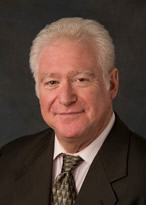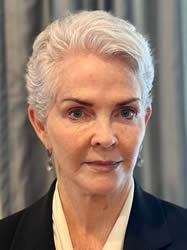On March 22 the U.S. Supreme Court issued an 8-0 opinion in the case Endrew F. v. Douglas County School District, ruling in favor of the parents of a student with autism spectrum disorder who had charged that the district did not meet the requirements of the Individuals with Disabilities Education Act (IDEA. The parents argued that their child did not receive a free, appropriate public education (FAPE) that was mandated by Congress.
The school district argued that the child had indeed demonstrated some progress. The parents argued that the degree to which the child progressed was very limited and was, in effect, not meaningful.
Interestingly, the Supreme Court determined that "de minimis progress" is insufficient.
This case is of considerable interest and relevance to more than eight million parents in the United States who have children that have Individualized Educational Programs (IEPs).
Based upon the first United States Supreme Court case, Rowley (Board of Education of Hendrick Hudson Central School Dist., Westchester Cty v. Rowley, (458 U. S. at 176, 203, n. 25, 1982), the Colorado school district argued that the special needs student in question made sufficient progress to demonstrate this his IEP was "reasonably calculated to provide a free appropriate public education. Clearly, the Supreme Court did not agree.
Given the Supreme Court's ruling, one may wonder what the significance is to children with disabilities on Long Island, children in New York State, indeed children across the United States.
In 1975, Congress passed sweeping legislation that supported children and youth with disabilities with a process for becoming identified as a student with disabilities, with measurable goals and objectives, with alternative placement options and evaluation procedures to determine the degree to which students were achieving their goals. Congress also included due process rights for children with disabilities and their parents.
Congress determined that students with disabilities should have an opportunity to be educated within the least restrictive environment, preferably within the general education setting with nondisabled peers in a manner that provided access to the general education curriculum (Public Law 94-142, Education for All Handicapped Children Act).
Clearly, special education, is not provided with the expectation that eligible for special education services evidence little or no progress with regard to academic, social, behavioral or physical skills. However, the issue that the Supreme Court addressed is just how much progress is reasonable.
Public schools face considerable challenges to provide special education programs that will enable its students with disabilities to make meaningful progress. These challenges are not trivial. When Public Law 94-142 was passed, Congress promised that the federal government would assume responsibility for some 40% of the costs associated with special education.
The commitment was noble. The implementation of that commitment was far less than noble. Public school administrators have yet to experience more than half of the financial commitment envisioned by Congress. Even the most dedicated superintendent and special education director is faced with overwhelming financial pressures that are unyielding.
Nevertheless, public schools across the United States are obligated to provide more than basic services through special education. Based upon this most recent Supreme Court opinion, it is simply not sufficient for public schools to offer special education services to students with disabilities. Students with disabilities must make meaningful progress in light of their unique strengths and challenges.
The Supreme Court did not render a decision that clarified in measurable terms what is an acceptable standard for meaningful progress. Students who have been determined to be eligible for special education services may have substantial academic challenges. Such students may struggle with their ability to read words in isolation or in paragraphs. They may struggle with their ability to understand what they read (reading comprehension issues). They may be challenged by mathematical calculation issues or solving mathematical word problems. Some students may experience substantial difficulties in following directions. Other students may be challenged by written expressive language disabilities. Such students may experience difficulty with technical aspects of writing (i.e. spelling, punctuation, capitalization or usage). Some students are able to express their ideas clearly and cogently but are not able to compose a coherent, well sequenced, well-articulated paragraph.
Some students with disabilities may have substantial challenges in following classroom or school rules, relating to their peers or teachers or demonstrating self-control.
There are many dedicated school administrators, general and special education teachers and other school personnel who address these concerns on a daily basis. Unfortunately, merely providing special education services is an insufficient basis upon which to determine that appropriate progress has been made.
The recent Supreme Court decision, has raised the bar with regard to just how much progress is reasonable. (Source, Council for Exceptional Children, News and Information for Special Education Professionals, Special Education Today, March 23, 2017.











